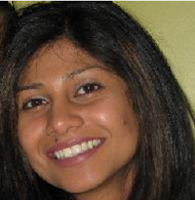 This week we have been exploring social bookmarking
and content curation tools, which I believe, are great tools that allow us to
sift through and reflect on topics that are of interest to us personally and
professionally.
This week we have been exploring social bookmarking
and content curation tools, which I believe, are great tools that allow us to
sift through and reflect on topics that are of interest to us personally and
professionally.
As educators, we have
always been curators of content. We have
read books, publications, and news on current events to collect information and
organize it so that we can present it to our students in meaningful ways. Content curation is a great “method to help
you stay informed about your field and be more effective at your job” (Kantor,
2011).
I had heard about Diigo, but had never used it. I can definitely see some benefits for teaching
and learning. Not only is the tool great
for gathering information about a specific topic, but you can annotate and add
sticky notes, which can then be shared for group work purposes, in classrooms,
and/or amongst your social communities. Now
that I have found value in using Diigo, I can add it to my personal learning
environment:
I was introduced to Scoop.it about 6 months ago and
it is a great content curation tool and I can also access it via my mobile
app. What’s valuable about Scoop.it is
that it provides you with a list of relevant information about a specific topic
of interest. It is up to “me”, to sift
through the resources and “scoop” or identify valuable information. When using curation tools, it is important to
not only find quality in the information we find, but to make constructive contributions
and add value that can be shared with others.
“Aha”, this constitutes being a valuable digital citizen. “Content curation and content creation aren't
competitive… Curate
or create content, but get correlated to the topical content of your industry
and meet the quality standards to become fit enough to survive the evolving
World Wide Web” (Ahuja, 2012).
There are many tools that can be explored to help us
find relevant information on our topics of interest. I came across the Top 100 Tools for Learning 2013
in my Feedly news reader, which I would like to share. I believe when exploring social bookmarking
and curation tools, it enables us to enrich our use of technology, as well as
our critical thinking and reflective practice skills to allow us to transform
personally and professionally.
As digital citizens, it is important for us to
contribute valuable information to the “World Wide Web” and use technology effectively
and appropriately that will allow us to live in a digital society that promotes
learning, social interaction, laughter (entertainment), and innovation.
Ahuja, B. (2012, October).
If you can't be a creator, then be a curator. Retrieved fromhttp://searchenginewatch.com/article/2221068/If-You-Cant-Be-a-Creator-Then-Be-a-Curator
Kantor, B. (2011,
October). Content Curation Primer. Retrieved fromhttp://www.bethkanter.org/content-curation-101/

No comments:
Post a Comment